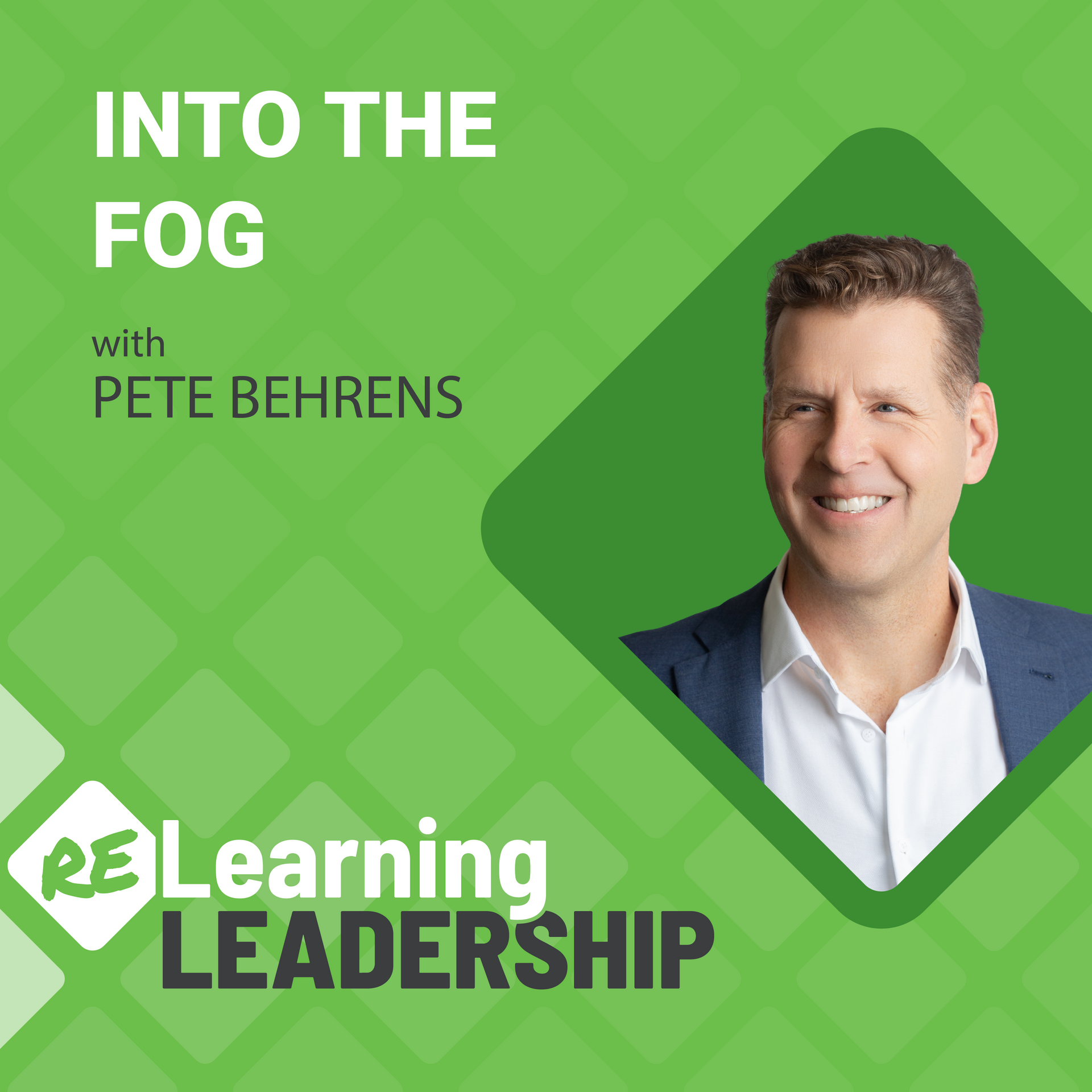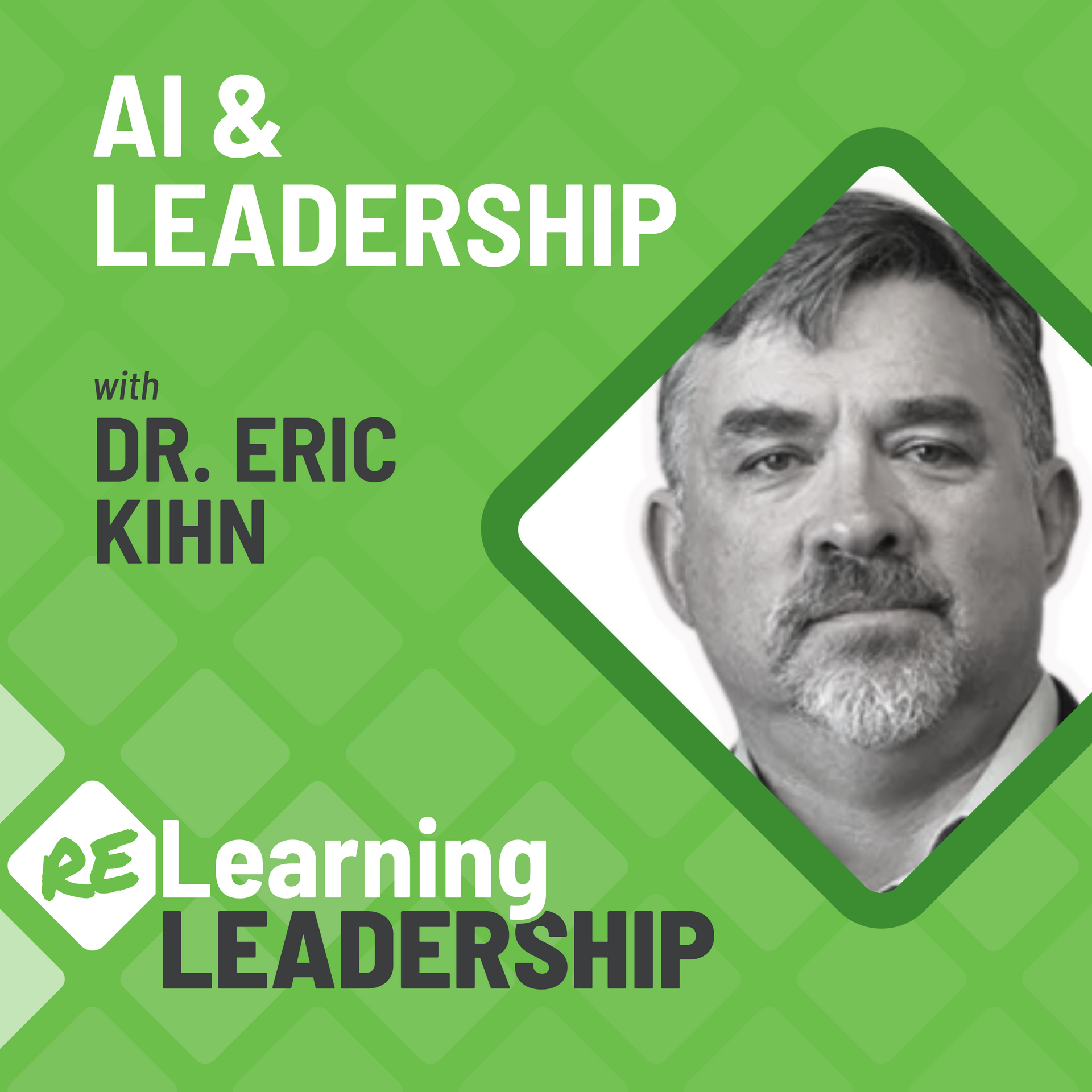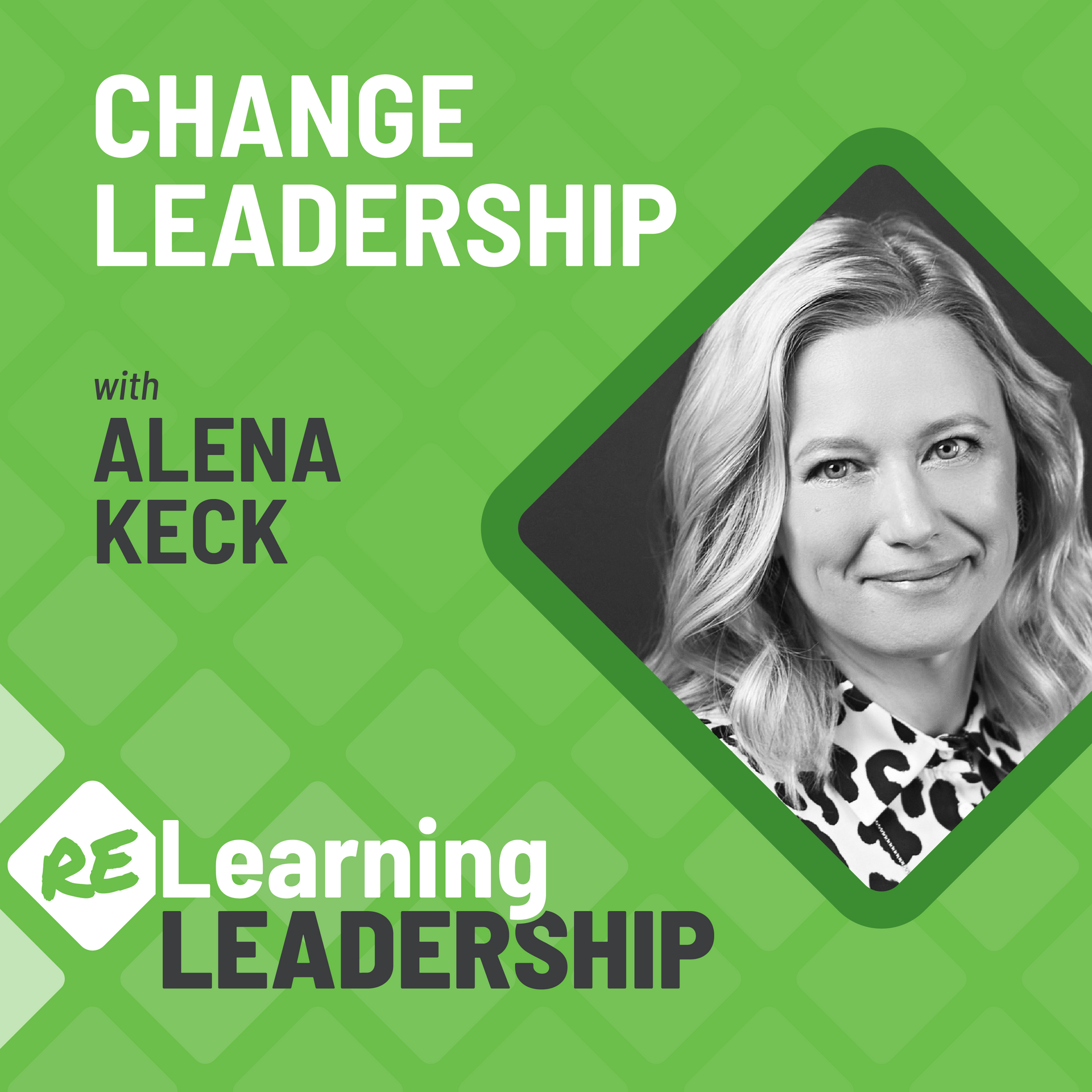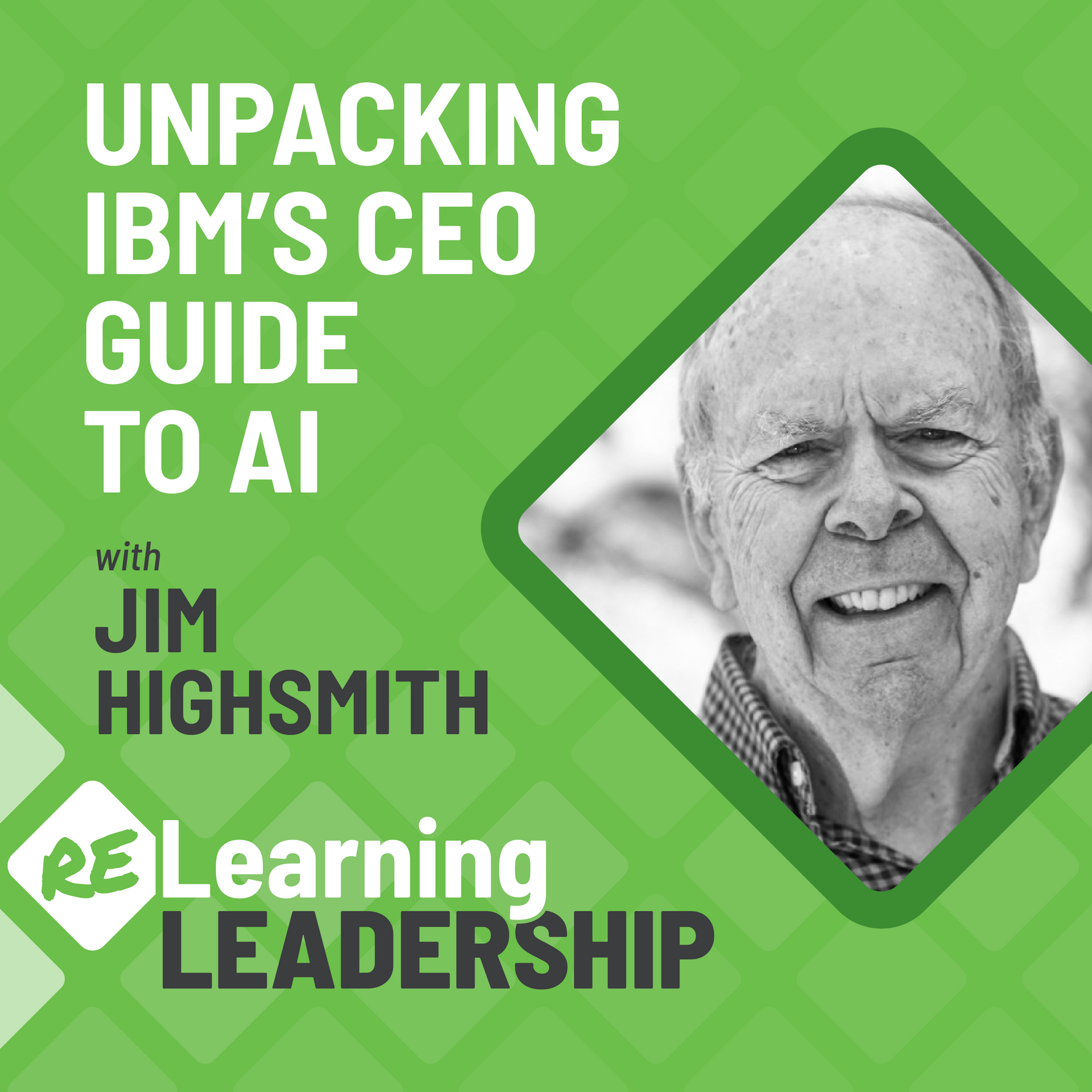10: Gambling on Leaders
How do leaders inspire others to follow?
Eric Engelmann is a seasoned leader, a serial innovator, and a leadership gambler. That’s right—this former founder and CEO experienced a rebirth in his own leadership, propelling him on a journey of betting on and shaping innovators of the future.
Eric shares his unique approach to identifying, betting, and improving his odds on their chosen leaders. And as part of our discussion, we dig into his own leadership journey, which includes a setback and a new direction guiding his approach today.
Eric Engelmann, CEO, Founder, Innovator, Startup Accelerator
Eric Engelmann is the General Partner at ISA Ventures, Iowa’s only multi-stage venture capital firm.
In 1999 Eric founded and led Geonetric, a marketing agency and software developer with deep technical and creative expertise for hospitals, health systems, and medical groups.
After 15 years, he left to found the non-profit NewBoCo in 2014, which guides young startups through Iowa Startup Accelerator, works with schools on Computer Science curriculum, trains adults in its DeltaV Code School, and works with corporate partners on innovation and technology strategies.
Eric serves on the Board of Directors for Scrum Alliance, and lives in Cedar Rapids, Iowa with his wife Amy, and their two kids, Mallory and Kepler.
Connect with Eric
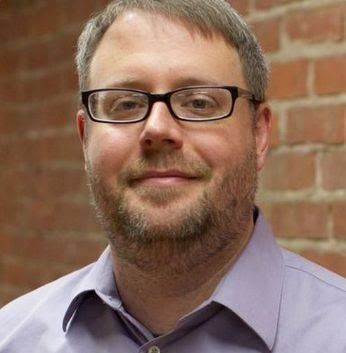
Relearning from Eric's story…
Spending time with Eric is always a pleasure and this discussion only added to my fondness of his curiosity and creativity as a leader. I love how not only does he reinvent himself, but it appears that he shapes everyone around him who comes into contact with his organizations as well.
I recall a visit to the new NewBoCo office a few years ago, where I was overwhelmed with the diversity and intersection of the parts he was describing here – part venture, part innovation lab, part school, part social equality, and a whole lot of good going on in that office.
Here are three themes that I found valuable in this episode...
Customer Empathy
Effective founders deeply understand and feel the pain that their customers feel. That level of empathy is something I believe ALL leaders can use to improve their effectiveness – creating a deeper and more visceral connection to those they serve.
The Pied Piper
Leadership is more than creating and sharing a compelling vision as we heard Eric describe – especially if that takes the form of a detailed document. Effective leaders inspire others through a Pied Piper effect, an aura baked into their personality that attracts others to join them on their journey.
Rerouting…
Our GPS devices automatically reroute us when we go off course. Yet, leadership doesn’t come with a GPS device. And sometimes we require course correction.
Effective leaders must both hold a clear destination AND be willing and able to change direction when new information is presented. While this appears to be a contradiction, it is in managing this tension that effective leaders thrive.
Episode Transcript
Pete Behrens:
What would you look for in a leader if you were placing a bet on them to succeed?
Welcome to another episode of (Re)Learning Leadership, where we explore a specific leadership challenge and break it down to help improve your leadership, your organization…and even your personal life.
Today, we meet Eric Engelmann, a seasoned leader, a serial innovator, and a leadership gambler. That’s right—this former founder and CEO of a small company experienced a rebirth in his own leadership, propelling him on a journey of betting on and shaping innovators of the future.
Eric Engelmann:
It's my job to deploy capital to people that I want to bet on. But our approach is, I think, a little bit different.
Pete Behrens:
Eric and I discuss his unique approach to identifying, betting, and improving his odds on their chosen leaders. And as part of our discussion, we dig into his own leadership journey, which includes a setback and a new direction guiding his approach today.
I hope to have piqued your interest. I’m your host, Pete Behrens, founder of the Agile Leadership Journey and 30-year veteran in corporate leadership, both as a leader myself and in guiding other leaders.
Thank you for joining us today. Let’s dive in.
Welcome to the show, Eric!
Eric Engelmann:
Excited to be here, Pete. Thank you.
Pete Behrens:
You're welcome. I first met Eric in 2008 when he was founder and CEO of Geonetric, a healthcare software company. Since that time, he founded and served as executive director for NewBoCo and the Iowa startup accelerator, a non-profit guiding young startups. So Eric, do you mind just sharing a little bit about the NewBoCo and the startup accelerator?
Eric Engelmann:
Yeah.
NewBoCo was started in August of 2014. We wanted to create an entity that could help make the state of Iowa, where I live, more resilient to change. We're a little bit behind the times, and a little slow compared to the coasts. We were going to do that by investing in and supporting startups in a way that nobody in Iowa was doing. And it ended up evolving in lots of related directions around building technical talent, to build the products that our entrepreneurs were dreaming up. Building new leaders that could help guide those companies as they grew. And then it evolved into helping existing companies to innovate and create new products. So it became this mechanism for me to maybe scratch an itch, which is, “How do I play with all the coolest people in the world and connect them through one entity?” And, in short, that's kind of what NewBoCo is.
Pete Behrens:
So essentially creating a Silicon Valley of the Midwest.
Eric Engelmann:
Something like that. Yep, yep.
Pete Behrens:
So take us back a little bit. What inspired this? What was this itch that was missing for you?
Eric Engelmann:
2012, 2013, I was a CEO of a small business and basically got bored with administering a business. And I'd heard
this nice gentleman speak
at a conference, a gentleman named Brad Feld—he's a pretty famous venture capitalist—talking about how they're doing it in Boulder. And I was like, “Nobody in my state talks like this guy!” It kind of makes me mad. And I decided, “You know what, maybe that's a path for me!” Honestly, I was inspired by his approach. Why do people have to go through five years of the misery that I went through before I figured out some things? Maybe I could help startups get there a little faster. And I started to research different programs and approaches for doing that and ended up leaving my job to create this non-profit.
Pete Behrens:
Wow, I've known you for twelve years, and I don't know that we had the Brad Feld connection. I didn't realize that. I'd known Brad here in Colorado as well. Great that he's been a catalyst in your world, too.
Eric Engelmann:
He really has. He's an inspiring fellow and just doing some amazing work.
Pete Behrens:
So if I were to put you in a category of, “Oh, he's just another VC guy, just another venture capitalist, just another investor,” how do you respond to that?
Eric Engelmann:
You know to a certain extent, it's true. It's my job to deploy capital to people that I want to bet on. But our approach is, I think, a little bit different, partly because we're a tiny little venture fund, it'll be about a 20-million dollar fund by the time we're done. In the scheme of the world, that's a micro, nano-VC fund. But what's interesting about it is, we're working with founders in Iowa. We only invest in companies that are in Iowa. And although the venture fund has a team of four, the non-profit entity that works right alongside it has a team of 25. And so we can bring a lot of things to bear for founders that are very different from a venture fund that says “Well, here's a check. And then I'll give you some sage wisdom from time to time, when you call me, or maybe I'll send you some tweets that are interesting.” We can say, “Look, we can help you find software developers from our code school. We can help you prototype a new version of your product in our prototyping lab. We can connect you with corporate partners in our innovation programs that are seeking companies like you, that solve the problem that they have.
So it's a very unusual mix of resources and assets that we bring to bear, that we think is very different from most venture funds. And honestly not all founders need those things, right? If they really just need capital, we might invest anyway, but we'll tell them our sweet spot is places where we can dive in, roll our sleeves up, and get dirty with you, and figure out the answer with you. That's kind of the big difference, I think, between us and most venture funds.
Pete Behrens:
Well, now you've piqued my interest. The concept of a non-profit, side-by-side with—you think of venture fund as being a very vultury-type process. You think of
Shark Tank, where they are pretty cutthroat. Can you describe this relationship? That seems pretty odd to me and, I imagine, to a lot of the listeners out there, how these two very foreign entities work together.
Eric Engelmann:
Yeah, it's an interesting arrangement. Believe me, the venture fund is very much a for-profit entity, or at least that's the intention. It's very young; we'll see how that plays out. But we essentially have an agreement, a contract between the two entities that essentially says, “Look, the venture fund is going to provide the capital in a particular way, and the non-profit is going to run a set of programs including a startup accelerator program that we did model after some of the stuff that Brad Feld worked on. But it's also going to run a code school and a bunch of other things as part of the deal.
And so, essentially, when we talk with founders, we're saying, “Look, we're bringing these pieces to bear to help you as a founder.” And I think there are a lot of venture capitalists out there who—the vulture word is probably reasonably well-deserved. I've observed it myself with some venture funds that—you know, they're pretty abusive of the situation and the relative power that they bring. I think we try to balance that. I mean, we very much have an interest in the best deal that we can get as investors.
But as a founder myself, and working with dozens of founders every year, I'm very sensitive to the situation that they're in. And we want to be reasonable and help them grow a business over a long period of time, because ultimately venture is a relationship business.
Pete Behrens:
What I really find unique here is the non-profit element, bringing in a code school, which is developing talent. The prototyping side of things to help increase feedback loops. Do good in the world, and have some fun playing business creator.
Eric Engelmann:
The combination of these two parts came about because the problem we're solving is complex. Venture doesn't solve ecosystem problems by itself, especially in a state like Iowa, right? We have a tiny population here, and we're very spread out. How do you essentially solve a problem that is a state that has a diffused population and does not have a tech ecosystem hub already. So in some ways this combination of entities and the seemingly complicated mashup of different pieces is a necessity. And that was kind of the conclusion we came to and why it ended up the way it did.
Pete Behrens:
Yeah. Because this is a leadership podcast, I want you to get a little vulnerable here. How would you describe yourself as a leader?
Eric Engelmann:
[long pause]
For ten to twelve years, when I started as a leader, the things that I thought were effective were—I would read Jack Welch and books about command-and-control structures, corporate structures. That was how I understood what leadership meant. It was: some really smart people go away, come up with a magic plan, and you hire really smart people to make your vision in your head become real. It became pretty clear early on in my career that wasn't enough, and that wasn't the style that I wanted. So I feel like we've always had this tension between, “How do you foster really good ideas and let teams do those things on their own?”
So the leadership style that has evolved for me over the years has been, “How am I truly empowering other people to do stuff so I don't have to do it anymore. [Laughs] And just to be clear, that sounds like the thing you get at Marriott on day one of your training. “You're empowered to do these five things!” That's not what I'm talking about. I'm talking about a job where I can build people up, and then I can go away and do something else. They're literally that empowered. And I guess I'm working on my third one now, of figuring out how to do that over time. It's like transferring not just the knowledge of how to do a thing, but transferring the vision from your head into someone else's head and letting them take it and run with it forever.
Pete Behrens:
Well, I'd say that's a bit of a superpower, in seeing you be able to bring others up. And I met you back in 2008. And you were this CEO and founder
with a
decent small company, struggling a bit in terms of the tech and the architecture. And I know you went through some fairly significant changes during our relationship back then. I wonder if you just take us back a little bit. What was going through you at that time, in terms of some differences in thinking about leadership, or differences in thinking about the way your organization was working?
Eric Engelmann:
Both the diagnosis at the time of what I thought the problem was and the solution that I assumed would solve it were both completely wrong. I remember about that time—this might have been right about the time when I first met you—I think I had written with one of my senior developers the 250-page specification for the one piece of the giant product we all wanted to build. Because I thought that was what I should do. I thought I'm the founder, I'm the CEO; that vision must spring from my head. And in order to get it built, apparently that means we have to write it down and create all these documents and then pass it over to teams to build it. I literally thought that was what I was supposed to do.
And in learning that that wasn't leading people, that was—I don't even know what that was, but I diagnosed it as a technical problem, when the problem was the way I was leading. There were technical problems, too, with the way we built the product, for sure. We had made some pretty poor architectural decisions in hindsight that we soon cleaned up. But I didn't understand as a leader what I was doing. I was rewarded because our company kept growing in spite of some of the mistakes that I was making. It blinded me to things.
There’s sort of the cliche of “Hire people smarter than you, and get the heck out of the way.” It almost feels trite when people say it that way, and yet, on the other hand, it's kind of the core concept. of If you've built a team that has the skills and the attitudes and the right understanding of what their goal is, you can release them to do things and get the heck out of the way.
But the power and the ego that's baked into that is really hard, I think, for people to separate. I was sort of the guy who figured it out and dreamed it up. And stepping away from that and making that someone else's job, literally, was sort of a transition for a small business owner. I'd been rewarded for that behavior, and I taught myself to value that and was inadvertently limiting my own, and everyone around me's, growth.
Pete Behrens:
Well, let me maybe add a little color to that, because I think you are underselling yourself a bit. One of the things I saw in your leadership at that time was an intense curiosity, an intense openness that, “Okay, something's wrong, and I'm open to figuring this out.” And it could be me, could be technology.
But the second thing I saw—you did not just let go. You dove in. When we saw you, you were struggling in this architectural hump of, “Our current product is growing, growing, growing, and I have no resources to do the new one.” Every time you tried to make progress on the new piece, the current one kept getting further away from you. And what I saw—your willingness as a leader was to step forward and say, “Okay, I've got to say no. I've got to make a key strategic decision to say no to a current customer to enable a longer term strategy.”
Eric Engelmann:
I think it's one of those growing up sorts of moments, where you've just been on this little path for a while and it's worked for you. And then just coming to the realization that it's not working and something else has to happen. I think curiosity is a fairer way of looking at it, because I was curious. Obviously there had to be a better way, I just didn't know what it was.
I was in my mid-20s. I'd had not even two years of work experience after college before starting my own company. And maybe that was one of those moments where what I didn't know kind of reared its head. And I think letting your ego go enough to say, “Look, there are people out there who know more than I do, and I can reach out to them and have them come in and help me think about this problem in a different way.” I agree; that was important. I think I knew at the time if we didn't make some big changes, the math just wouldn't continue in a good way. The spreadsheets were quite clear that we couldn't keep doing it the way we were doing it. It would ultimately be bad. So we knew something had to change.
Pete Behrens:
Do you
take those failures forward?
Does that bend what you look at in leaders today? Is there any part of that that colors your lens of how you're looking at the companies you're working with today?
Eric Engelmann:
It really does. I think one of the ways I would articulate that curiosity or willingness to change directions is, “Are the founders willing to be swayed by new information? Are they willing to change direction given the result of an experiment that highlights a mistake or a problem or a risk that maybe they didn't know before?” And we do test our founders with that actively.
The sort of flip-side of that, though, is—it's one of the reasons I'm in this job. Because I feel like at the time I didn't have someone to call to say, “Alright, what were the ten things you did that were totally bone-headed, that if you could rewind the clock, you could go back and not have done, and saved yourself a lot of time, a lot of money, a lot of jobs, probably that could have been created or saved through doing it that way.” That motivates me now. I have this array of stories of, often, my own kind of boneheaded mistakes that I can share with people to illustrate a situation that is exactly where they're at today.
Pete Behrens:
That's interesting. Your background is providing you that domain presence to be able to relate and connect and challenge these leaders. What is it you're looking for in leaders that would come to you and say, “Hey, I want to start a business!”
Eric Engelmann:
You know, that's really the magic question, right? Because my job today is to bet money literally on that assessment of people. So if I had the perfect answer, I'm not sure I would tell you in a podcast. [Laughs] But I can say we've learned a lot. We've invested in some 50 companies—a little more than 50 now—over the last six, seven years. And it depends a little bit on the stage, but in general, there's a character of being a leader that we're looking for. And that is enough domain understanding to be able to understand the marketplace problems that people face in a
deep and visceral way, with some empathy. We'd look for that in founders, that they've either felt it themselves or have a means to feel the pain that their customers feel.
And we look for founders who can weave together insights from incomplete data. Every founder is doing that all the time, but the ability to construct a meaningful and concrete next action to take is the sort of magic sauce that's often missing, to take those different pointers and possibilities and say, “Yeah, but given all that, here's what we're going to do next to see if we can help solve that problem.” And we look for founders that have the—I want to say charisma. It's not charisma, though. It's more than charisma. It's a little bit of a Pied Piper sort of trait that people want to follow. They're inspired by it. They have this interesting aura about them that says, “I'm going to do something that's going to change things and make it better, and I want to be a part of that.” And we look for people who have that baked into their personalities.
Pete Behrens:
And that to me only comes through hard knocks, only comes through a significant time invested in a space.
Eric Engelmann:
Absolutely. And I think the
hard knocks pieces has an insightful implication. They're basically banging into this thing over and over again, trying to sort out the answer. And so there's a fearlessness that kind of goes with that, a willingness to be wrong, a willingness to try something and try to learn from it and be really intentional about that learning. And the humbleness of being able to accept, whatever the answer is.
Pete Behrens:
So you've mentioned before that you get bored. As soon as something becomes routine, it becomes boring to you. Is what you're doing today getting to that point? And where does Eric go from here?
Eric Engelmann:
It's interesting you asked that. No, I'm definitely not bored right now. I'm nine months into this job. And as a venture fund, the way it's set up, I am now committed to a whole bunch of rich people, and I'm going to do this for ten years. [Laughs] And I can't get out even if I want to.
Pete Behrens:
Golden handcuffs.
Eric Engelmann:
Basically of my own making, in my own design! That aren't all that golden yet, but someday they might be.
Pete Behrens:
Okay, silver handcuffs.
Eric Engelmann:
Yeah, maybe silver. I think the thing that's maybe motivating to me about it is—that I didn't have when we started all this in 2014—now there's 29 people combined, all working toward this common goal, through the non-profit and the venture fund. And to my knowledge, nobody's quite built what we've got before, or is trying it in a small mid-sized community like Cedar Rapids, Iowa, population 150,000 people. It's a random flyover city. For the most part, it's like many many others out there. And we're trying to do something that could have a very important impact for this city and the surrounding cities and potentially the whole state of Iowa. And maybe even some surrounding states, if we keep growing like we're doing now. And the complexity of that is very much keeping me from getting bored anytime in the near-term future. It's a complicated problem at the intersection of education, of economic development, of startup ecosystem support. It may wind up literally trying to fix things in schools as part of it. It's helping existing companies be more innovative. We've got plenty of room to run in the current architecture that I think will keep me entertained for some time.
Pete Behrens:
I could see future governor Eric Engelmann of Iowa. [Laughs]
Eric Engelmann:
Not for at least nine-and-a-half more years. [Laughs] That is not possible! No, the politics side is actually really interesting.
And
I feel like I can get a lot more done in the private sector, and I just don't want to put my family through something like that.
Pete Behrens:
Let's say you're pitching to people interested in starting something up and might approach you in terms of ideas. What advice would you provide them, or what do you want them to be rethinking in terms of their approach, themself as a leader?
Eric Engelmann:
Every leader comes from a different background and set of experiences, so the answer necessarily has to be a little bit different for everyone based on what challenge they're dealing with personally and what their background has been like. But I think the things that I look for in founders, that I think are important for them to grow as a skill, is the ability to
take the input in from employees and customers and prospects and figure out how to take that and turn that back into something with your team, into something that's valuable, that solves a problem for them. It sounds almost so basic, and yet the word that's important there is the “turning-around” word, that idea of, “How do you make that come together?”
Because a lot of people can go get feedback from a customer, they can go get feedback from employees. But the ability to then turn it around into something is the skill that often we're honing with founders, right? It doesn't matter if you have that access if you can't make something out of it that actually does what you want it to do. It's about a founder being able to articulate concisely and clearly the diagnosis of the situation and turning it into an answer. Sometimes it's about—we're advising them as leaders to make sure, “Are you hearing the right voices from the right places?
And sometimes it's just on the execution side. You maybe have the right input, and you can turn it around, but you can't execute what you want, which—back to our story earlier about my situation. I thought it was the latter, but I think it was maybe more about me. I thought it was, “My team couldn't turn into what I wanted fast enough, but that wasn't actually the issue. It was much more about my ability to help them focus on what was important.
Pete Behrens:
Yeah, yeah. Well, Eric, I just want to say thanks for sharing your story today.
And I've learned a little bit more about you, but also, more importantly, I think, have a better understanding of the ecosystem you're trying to create, which is interesting and exciting. If people wanted to know more, if somebody outside Iowa wants to invest, or if you've got somebody that's curious to start a company, where should they go?
Eric Engelmann:
I think the best way to learn more about it is probably the NewBoCo website. It's n-e-w-b-o dot c-o.
Pete Behrens:
NewBoCo. And that stands for?
Eric Engelmann:
The New Bohemian Innovation Collaborative. Which is probably a whole other podcast for where that name came from. But it's a lot of fun.
Pete Behrens:
Awesome, awesome. Well, thank you, Eric, for your time today, and it was great to reconnect.
Eric Engelmann:
Appreciate it, Pete.
Pete Behrens:
Spending time with Eric is always a pleasure, and this discussion only added to my fondness of his curiosity and creativity as a leader. I love how not only does he reinvent himself, but it appears that he shapes everyone around him who comes into contact with his organizations as well.
I recall a visit to the new NewBoCo office a few years ago, where I was overwhelmed with the diversity and the intersection of the parts he was describing here—part venture, part innovation lab, part school, part social equality, and a whole lot of good going on in that office.
What can we (re)learn about our own leadership from Eric’s story? Let me share three themes I believe we can bet on.
Number one: customer empathy. Effective founders deeply understand and feel the pain that their customers feel. That level of empathy is something I believe all leaders can use to improve their effectiveness, creating a deeper and more visceral connection to those they serve.
Two: the Pied Piper. Leadership is more than creating and sharing a compelling vision, as we heard Eric describe, especially if that takes the form of a detailed document. Effective leaders inspire others through a Pied Piper effect. It’s an aura baked into their personality that attracts others to join them on their journey.
And finally, number three: rerouting. Our GPS devices automatically reroute us when we go off-course. Yet, leadership doesn’t come with a GPS device. And sometimes we require course correction. Effective leaders must both hold a clear destination and be willing to be able to change direction when new information is presented. While this appears to be a contradiction, it’s in managing this tension that effective leaders thrive.
So, are you willing to be swayed by new information? Are you willing to be wrong? Are you willing to change direction given the result of an experiment that highlights your mistake?
If so, we’ve got ourselves a leader we can bet on.
My name is Pete Behrens. Thank you for joining us today.
Relearning Leadership is the official podcast of the Agile Leadership Journey. It’s hosted by me, Pete Behrens, with analysis from our global Guide community. It’s produced by Ryan Dugan. With music by Joy Zimmerman. If you loved listening to this podcast, please leave us a review. And visit our website,
relearningleadership.show, for guest profiles, episode references, transcripts and comments, and more. And to (re)learn more about your own leadership, visit us at
agileleadershipjourney.com.
Explore:
Recent Episodes

